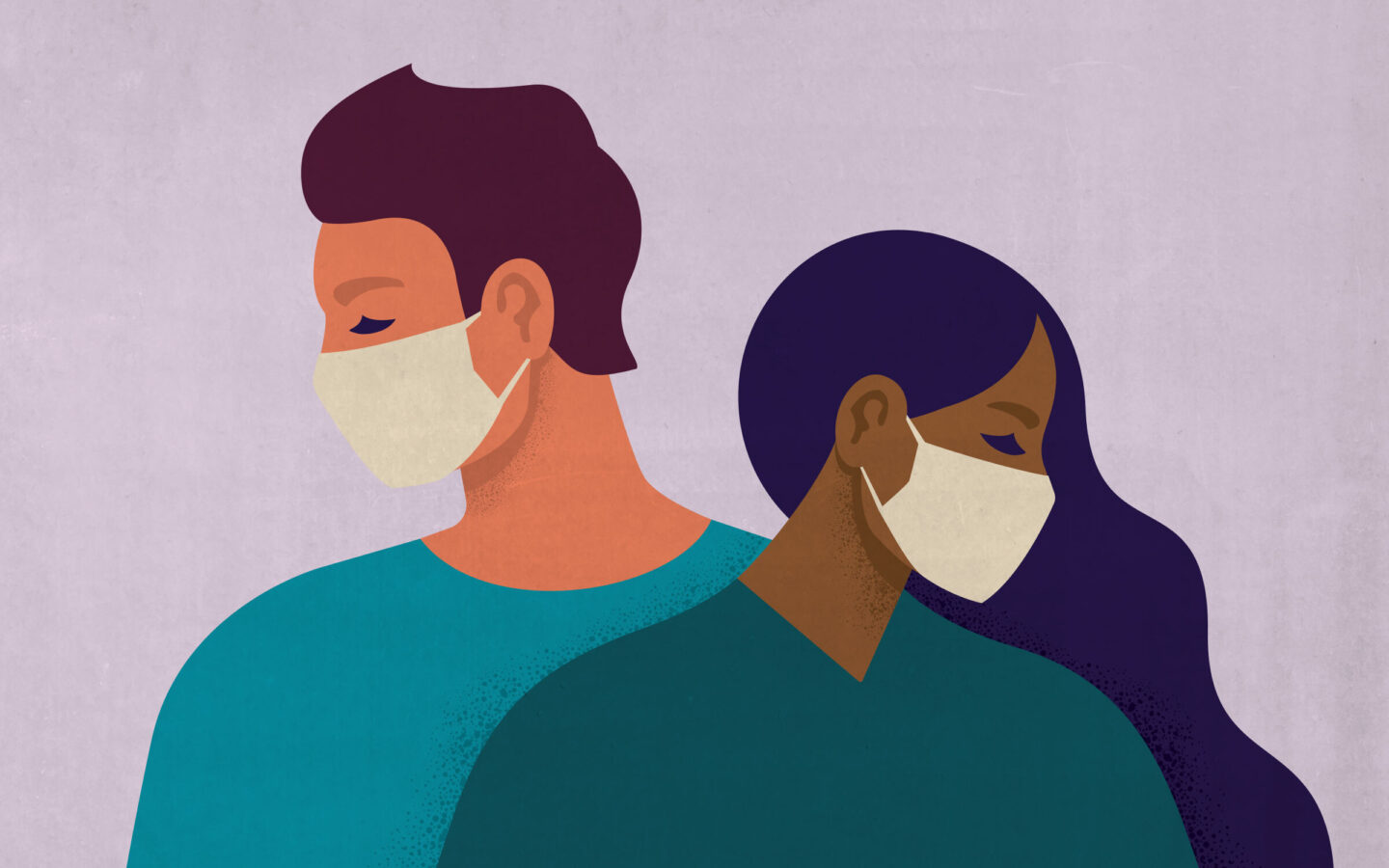- Having good working relationships with physicians is crucial—not just for us, but for our patients
- While it can be tempting to just write some doctors off as arrogant and disrespectful, that’s neither fair nor in our best interest
- Power imbalances are real—but there is usually more to nurse/physician interactions than meets the eye
- Learn how communication, collaboration and confidence can make a big difference in our working relationships, and a few ways to strengthen these skills
Relationships between doctors and nurses can be complicated.
We’re coworkers who share a common goal: caring for patients. We’re a team, and we need each other. In the best of times, when we collaborate and our teamwork shines, doctors, nurses and patients all benefit.
Other times, though, that teamwork breaks down. When the way we relate to each other is driven by hierarchy (real or perceived), not collaboration, the result can be frustrating for everyone involved. In situations where dysfunctional power dynamics prevail, the message to nurses can be disheartening—defer to doctors…and don’t waste their time.
We obviously aren’t the first to call attention to this dynamic. It’s striking just how many nurses can easily conjure up a memory of a humiliating or anxiety-inducing encounter with a physician, often early in our careers.
And it extends beyond individual incidents and a handful of anecdotes. In a recent survey of 300 U.S. nurses, a majority reported consistently feeling undervalued in their interactions with physicians, even as they take on more leadership roles. While being expected to provide high levels of clinical skill, nurses also must follow the instruction of physicians in providing some of our care. While this is appropriate, and legally required, there are two aspects of the dynamic that can become problematic. First is semantic—it could be argued that “following orders” is an outdated, militaristic way of describing nurse/doctor collaboration. Second, we often feel pressure to blindly or unquestionably adhere to doctors’ requests, even if it contradicts our own clinical judgment.
It can be very tempting to look at this data and stereotype doctors as arrogant and disrespectful. And it is true that not every physician is the most empathetic, patient or collaborative teammate—but neither is every nurse. There’s much more to the story. Many physicians are amazing to work with and care about their patients as deeply as we do.
So, the question becomes, how can we speak openly and honestly about the very real challenges we face in our relationships with physicians while remaining professional and not giving in to resentment?
Understanding the situation
First, we will call a spade a spade. Physician behavior can absolutely be problematic. More than half of nurses report that physician behavior has negatively affected them on the job, and specifically, 92% of health care workers surveyed by the Veterans Hospital Administration had witnessed disruptive behavior by physicians, including confrontation, conflict, verbal abuse, or physical and sexual harassment. The impact these behaviors have on nurses was articulated most clearly by a physician quoted in the report:
“We can’t afford to disrespect nurses. The problem of disruptive behavior is drawing the attention of hospital executives because of the effect it’s having on the nurse population,” said Dr. Alan Rosenstein, medical director of VHA West Coast.
Harassment, or dismissive, belittling behavior is bullying, plain and simple. And bullying isn’t any less serious when the perpetrator is an M.D.
This is an issue with serious implications. Aside from our own mental health and happiness in our jobs, a negative or intimidating relationship between a physician and a nurse puts the patient at risk.
Before we dig into what’s behind the tension, and some ways we might improve these relationships, it is worth asking: How do physicians see the situation?
This may or may not be a surprise to you, SHIFT Talkers, but physicians rate our relationships with them significantly better than we do. To us, this points to the need for nurses to open up and talk about this dynamic and how it affects nurses personally and in our work, because we’re experiencing it differently from physicians.
So what’s really behind this dynamic?
Just to cover our bases, some workplace conflict—in health care or otherwise—boils down to personality differences. You’re not going to get along with everyone you work with, whether you’re a nurse or a nail tech or a news anchor.
But there are aspects unique to the nurse/physician relationship that specifically contribute to animosity.
One aspect is the way hospitals are structured. According to the University of Missouri’s Center for Health Ethics, under the physician hierarchy found in many facilities, doctors wield substantial authority over the direction of the hospital—including the workplace environment, and what kind of behavior is tolerated.
Here are a few other contributing factors.
The power imbalance between physicians and nurses
Like we mentioned earlier, physicians generally sit in positions of higher authority than nurses, and this can create tension. In most settings, doctors aren’t actually our direct supervisors, so they don’t always have a full picture of our skills or our situations, but they often wind up giving us orders. When it comes to care instructions, that is generally appropriate. But when it comes to direction in our work, resentment can easily grow, especially if other aspects of the relationship aren’t strong. Because nurse job satisfaction isn’t generally within a physician’s scope of responsibility, there isn’t always a clear incentive to nurture a positive relationship.
Educational, socioeconomic and gender dynamics can also be a factor, according to the American Medical Association Journal of Ethics. Historically, physicians were predominately men, and nurses were predominately women, and our financial situations and educational backgrounds often differ. These trends have been changing in both directions—more women are becoming M.D.s, and more men are working as nurses—but data shows these dynamics can contribute to disruptive behavior, with a direct impact on patient outcomes.
Different scopes of practice and responsibility
While physicians and nurses are both medical professionals, their scopes of work, education, experience, and responsibility vary substantially.
Physicians often spend a shorter amount of time with patients, yet they bear more institutional responsibility for their care. Nurses may be more closely acquainted with the details of a patient’s condition—as well as to the patient as a person—but we cannot make medical diagnoses, determine treatment, or prescribe medication.
As a result of these differences in roles and responsibilities, a common experience for nurses is feeling like our patient knowledge and experience are downplayed or outright ignored.
A few solutions
That said, understanding the context and contributing factors for conflict is just half the battle. How can nurses and physicians actually improve harmful relationships? And while it takes two to tango, we must also acknowledge that, ultimately, we can only control our own behavior.
So how can we make these relationships the best that they can be? And how do nurses acknowledge our frustrations while remaining professional and focused on providing the best possible care?
Here are three things to consider.
1. Communication
Conflict often stems from miscommunication. It never hurts to take an objective look at your own communication skills, as well as reflecting on situations where communication went really well in comparison to situations where it could have been better and identifying why. This doesn’t mean that any disrespect that comes your way is warranted, but self-reflection can be a useful exercise for helping you objectively understand what contributed to a negative exchange with a doctor (or anyone, for that matter).
The familiar SBAR framework can be helpful in ensuring the following information is provided:
- Why are you calling the physician? (Situation)
- What background information on the patient does the physician need? (Background)
- What is your assessment of the situation or problem? (Assessment)
- What interventions do you recommend? (Recommendation)
Of course, clear communication alone won’t move the needle where power discrepancies or gender-related biases are key drivers of the dynamic at play, so here are a few other recommendations to consider.
2. Collaboration
Multidisciplinary teamwork is a bit of a buzzword in health care administration right now. Health care requires various specialists with different skills and backgrounds to come together and care for a patient comprehensively. The benefit to patients is clear, and collaboration can also break down the hierarchy and centralized power of health organizations.
But doing this well is no easy task, which is why identifying bottlenecks or points of conflict is a priority for execs in hospitals and other health care settings.
Data shows that nurses who are intimidated by physicians do not communicate as quickly or consult as readily, and research on the matter is clear: “Collaboration between physicians, nurses, and hospital administrators is the only way a healthy work environment will be attained. It is the responsibility of each group to begin the conversations that will improve this patient safety barrier.”
When it comes to advocating for nurses with physicians and hospital leaders, administrators can really set the tone, and as nurses, we can demonstrate our willingness to support these efforts.
But what do you do if, despite your best efforts to communicate and collaborate, you continue to have difficulty with a specific physician? You might consider bringing in a third party to help you assess the situation. Finding a peer or mentor to talk with can help you vent and get perspective on the situation before you decide to take any action. If disruptive behavior continues, evaluate with a trusted colleague or supervisor whether it might be appropriate to involve your organization’s HR department. Most workplaces have processes in place to prevent and respond to instances of harassment or inappropriate behavior.
3. Confidence
Ultimately, you might not always have a great relationship with every physician you work with—or every nurse, or every patient, for that matter! But don’t internalize a tough interaction. Have pride in your practice, your education, your hands-on skills and experience, and your deep well of knowledge.
COVID-19 has broken down some these barriers, at least in the short term, as the urgent and unprecedented nature of the crisis suspended the hierarchies separating doctors and nurses. In the new normal, many of the barriers that made it challenging to truly collaborate were pushed to the side. This isn’t happening across the board, but the power of teamwork in treating COVID-19 patients has been a big takeaway during this pandemic. Doctors are among those who are acknowledging nurses’ skill in ways they weren’t previously.
Improving relationships with physicians won’t happen overnight, and we do want to acknowledge that if you’re frustrated, you aren’t alone. But you’re also not powerless—nurses are a critical part of health care, and physicians know this. With time, mutual respect, and continued effort, we believe that even the most challenging relationships can be improved.


